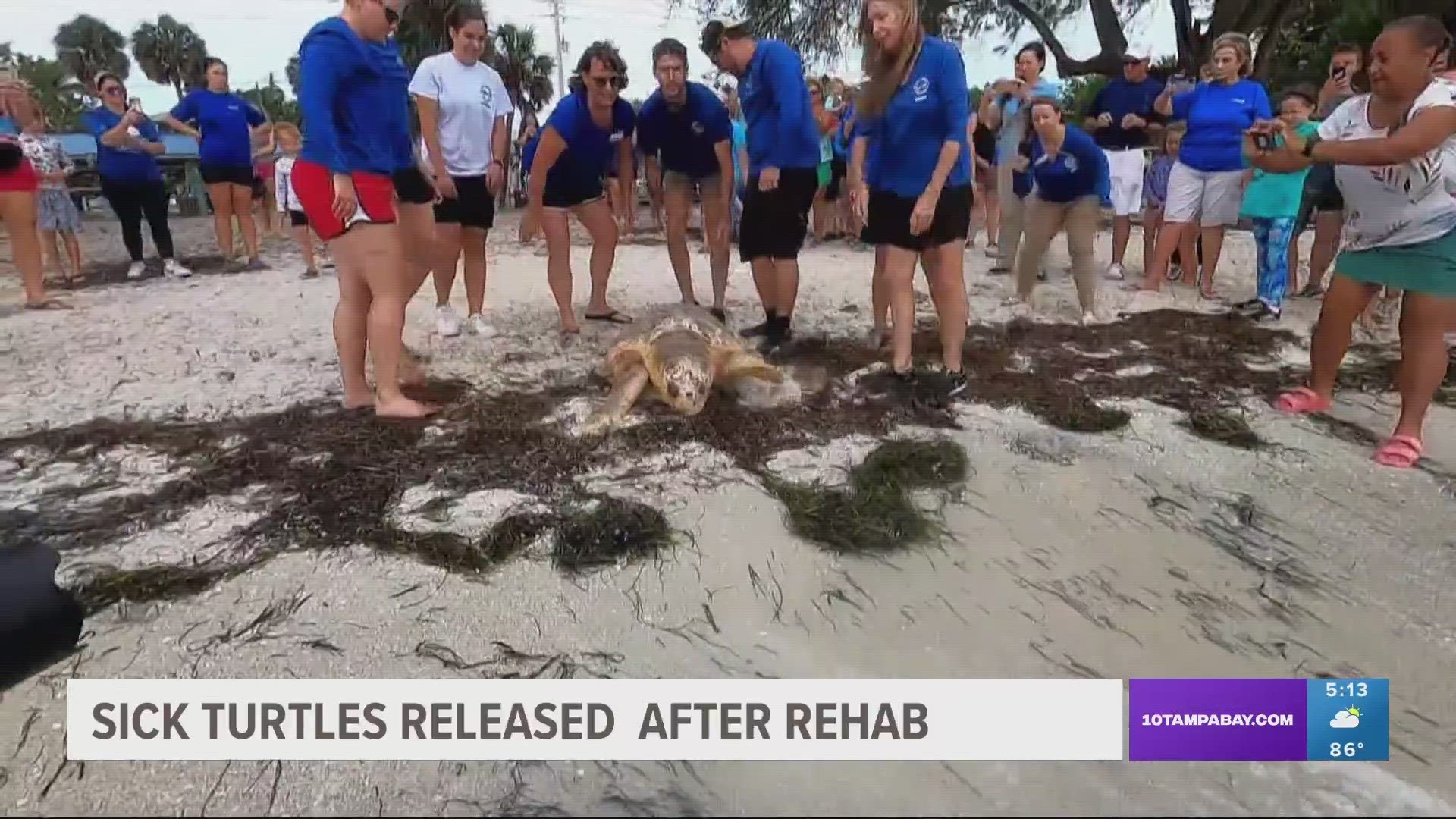ANNA MARIA, Fla. — Two endangered loggerhead turtles returned back to gulf waters Tuesday night after spending months in the care of specialists at Mote Marine Lab.
The sea turtles nicknamed Valerie and Mahomes got sick from red tide and were rescued back in February and before eventually getting released at Anna Maria Bayfront Park.
Valerie was found floating nearshore on Longboat Key on Feb. 21. According to Mote Marine Lab, when "Valerie" was first observed, they discovered she was affected by toxins from red tide.
The rescuers then transported her to Mote's Sea Turtle Rehabilitation Hospital where she began receiving treatments, including antibiotics and fluids until there was an improvement. Scientists also found that she already had a tag on her flipper tag and a passive integrated transponder (PIT) tag which had been placed by Mote's Sea Turtle Conservation & Research Program in 2019. This meant that the turtle already had her unique barcode identification number so the scientists could gather data on her migratory patterns, growth, survival and reproduction.
Mahomes, meanwhile, was found washed ashore off Casey Key Road in Sarasota and had shown symptoms of red tide toxicity, according to Mote scientists.
He was brought to the Hospital on Feb. 13 and later transferred to The Florida Aquarium Turtle Rehabilitation Center due to the high capacity of sea turtles impacted by red tide exposure. He also received similar care and treatment with antibiotics while undergoing rehabilitation. The turtle also got a satellite to track its pattern and livelihood.
"It was debilitated and it just needed some TLC to get us over that hump and start treating some of those toxins well," Ashley Reise with the Florida Aquarium said.
The data from the tags will help researchers know how they are integrating after rehab and re-adjusting to the natural environment after their release.
"[We want to know] what do they do once they are back into the ocean where they go, how did they use their habitat, where are their foraging grounds and if the turtles are of age where are the breeding ground," Reise said.
There are around four turtles currently in rehab at Mote's facilities.
"Our hospital is full and the turtles just kept coming so when we reach capacity, that's when we reached out to our partners and colleagues in the field to help out and they were more than willing to come and help us," Gretchen Lovewell, manager for Mote Marine Lab's Stranding Investigations Program, said.
Lovewell said only one turtle hatchling out of 1,000 makes it to adulthood. Throughout the year, many adult sea turtles are stranded or need rescue from objects like plastic and fishing lines. Sea turtles also face immense hazards and threats during nesting season, which is why biologists say protecting and rescuing them is key to their preservation.
"When we get a chance to save the ones that come in and need our help, it's really kind of the best of everything. We can put our knowledge and skills to work and hopefully end up with a day like today when we get to release them," Lovewell said.
Officials advise you to call the Florida Fish and Wildlife Conservation Commission for help if you see a stranded turtle. They also want folks to keep in mind that sea turtles, as well as their eggs and nests, are protected under state and federal law. Individuals can face serious penalties for harassing or interfering with a sea turtle, dead or alive. Nesting season in the Tampa Bay area ends on Oct. 31.

